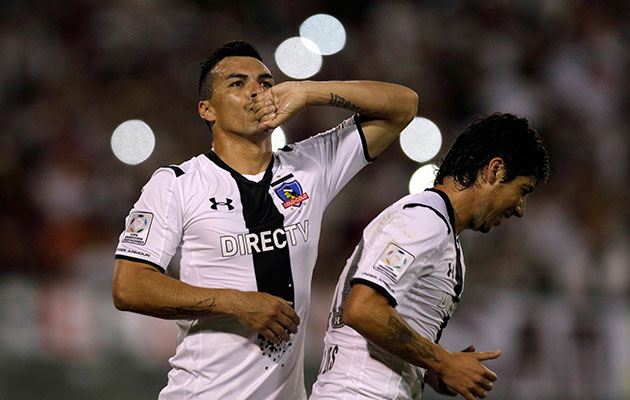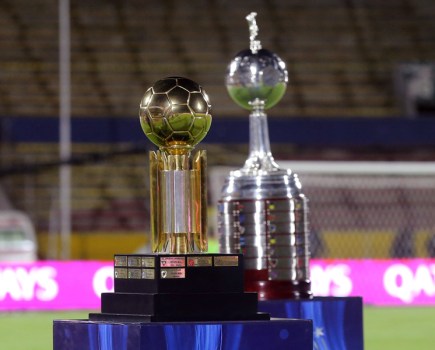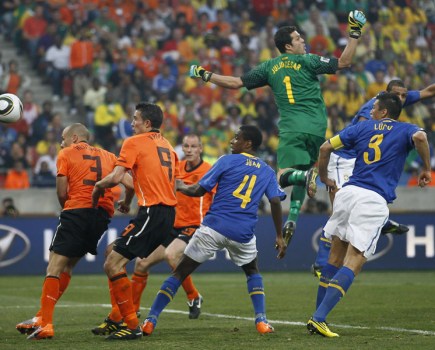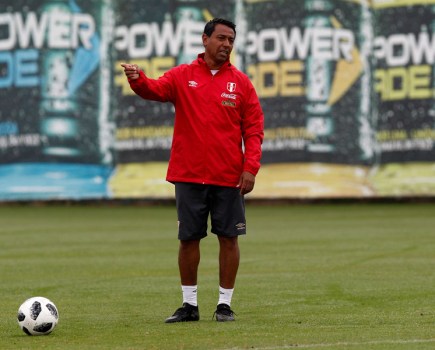Chile’s most popular club have a big few days ahead of them. Colo Colo have two shots at a title in the next week.
On Wednesday they meet their great Santiago rivals Universidad de Chile in the final of the cup, a one off game played on neutral ground, in this case La Serena, some 300 miles north of the capital. ‘La U,’ as Universidad De Chile are known, are enduring a dreadful season – they lie 13th in a 16 team first division. Winning the cup, then, is their chance at redemption, which means that Colo Colo will be facing highly motivated opponents.
And then at the weekend Colo Colo can wrap up the league title. They go into the final round one point ahead of their other big Santiago rivals, Universidad Catolica. Both are away from home, Catolica in a local derby against 5th placed Audax Italiano, while Colo Colo take the short trip to Valparaiso to take on 8th placed Santiago Wanderers. A Colo Colo win would crown them as champions.
But as the team close in on the chance of completing the double, there are two reservations to be made. The first is short term; do they have enough gas in the tank to get them over the line? Coached by 1998 World Cup playmaker Jose Luis Sierra, Colo Colo are not a young team. An extraordinary eight members of the starting line up for Sunday’s match were 30 or over – and it showed. The 1-0 win at home to Universidad de Concepcion was a scratchy affair. On a warm afternoon the team were hanging on towards the end of the match. Reproducing the same level of performance over the next few days could mean that they finish the season empty handed.
Clearly, the club’s objective will be to claim both league and cup. The main thing, though, is that victory in either will qualify Colo Colo for next year’s Copa Libertadores – and it is here that the second reservation comes into play.
Colo Colo already have 30 domestic league titles to their name, but they are the only Chilean club to have won the continental trophy, and their sole Libertadores triumph came back in 1991. Since the expansion of the competition at the turn of the century, Colo Colo have taken part 10 times – but only once have they made it out of the group stage, and even then, in 2007, they fell at the next hurdle.
In truth, it is not only Colo Colo who have punched below their weight in the Copa Libertadores – it is Chilean football in general.
The Chilean league has received some praise and attention in recent years. But a glance at the results leads to a conclusion that this is almost certainly an unearned spin-off from the recent rise of the national team. Indeed, it is striking how little progress the country’s clubs have been making in continental competitions. The one – flickering- success story has been Universidad de Chile.

National team coach Jorge Sampaoli presided over a glorious period of success for Universidad de Chile.
In their exhilarating time under Jorge Sampaoli, now the national team coach, they won the Copa Sudamericana – the Europa League equivalent – in fine style in 2011. The following year they carried their form through to the semi finals of the Libertadores, the competition that matters. In 2010, under arch-pragmatist Uruguayan coach Gerardo Pelusso, they also reached the Libertadores semi finals. The following year Universidad Catolica got to the quarter finals. But that is it – the sum total of the times that Chilean clubs have made an impression in the competition over the past 15 years.
In 2015, for the second time in three years, all of the country’s representatives were knocked out in the group phase. Only Venezuela has done worse.
It is not clear quite why this record is so awful. It can hardly be ascribed to limited resources – Paraguayan teams have come up with some excellent recent performances, with two finalists and a semi finalist in the last three years. There have been some interesting ideas around. Chile, after all, is where the Marcelo Bielsa revolution gained extra momentum, and there have been several disciples and former assistants active in the club game, such as Sampaoli, or Eduardo Berizzo, now earning some headlines in Spain with Celta Vigo.
Then again, the Bielsa school calls for relentless hard running. Perhaps teams such as the current Colo Colo line up are too full of veterans to put such plans into practise.






